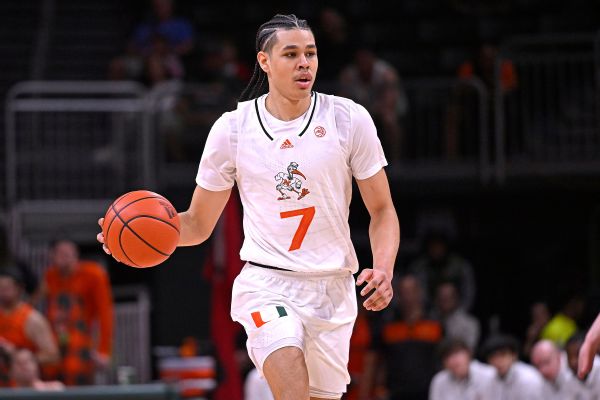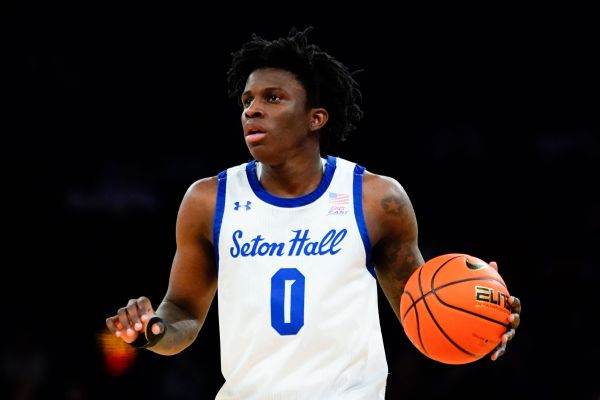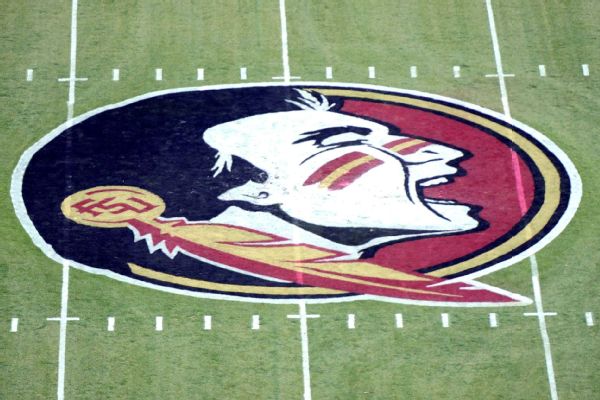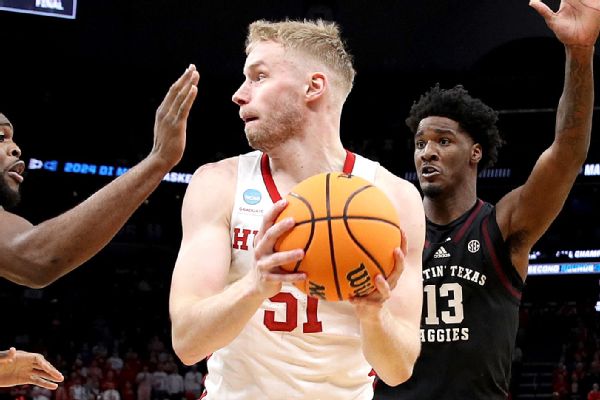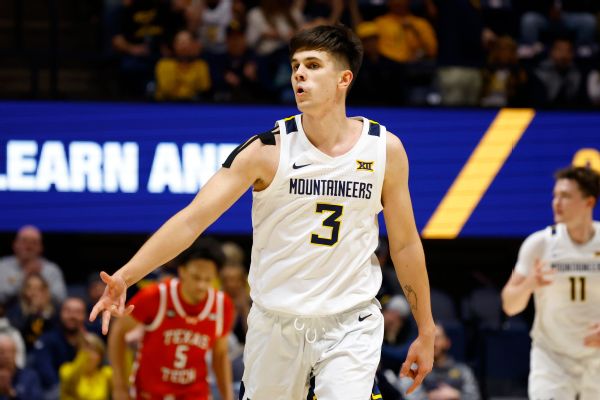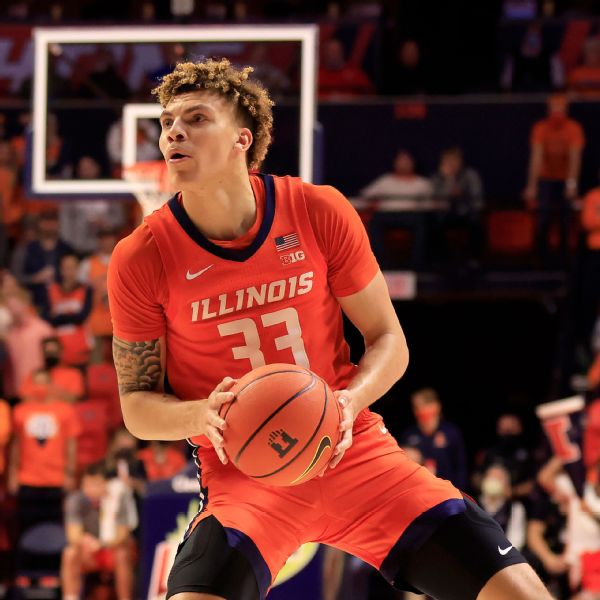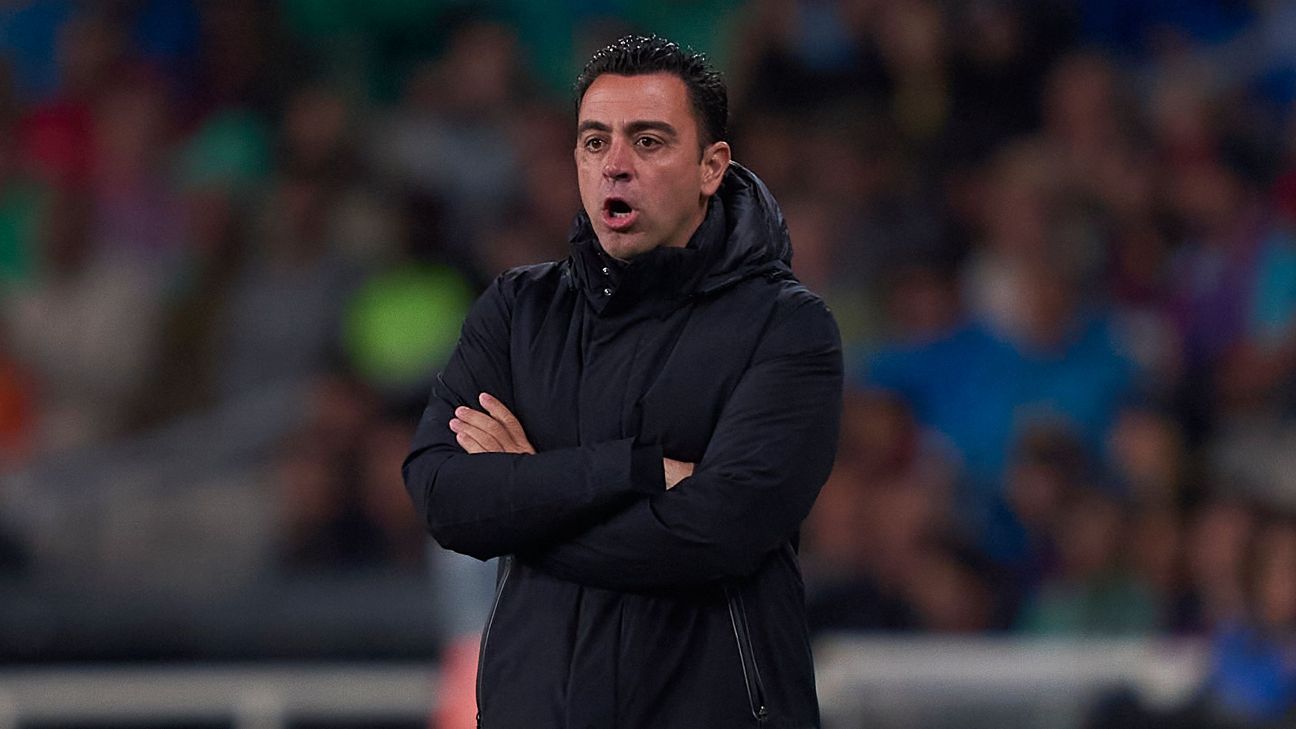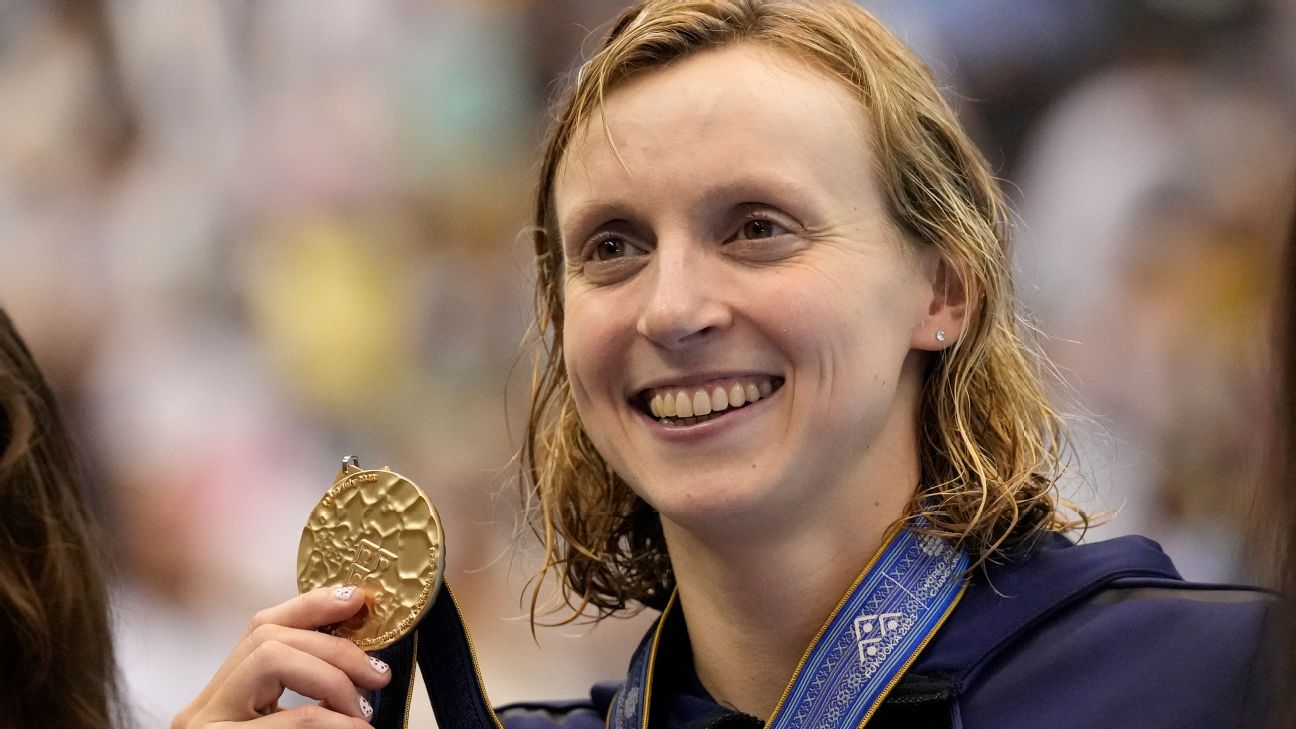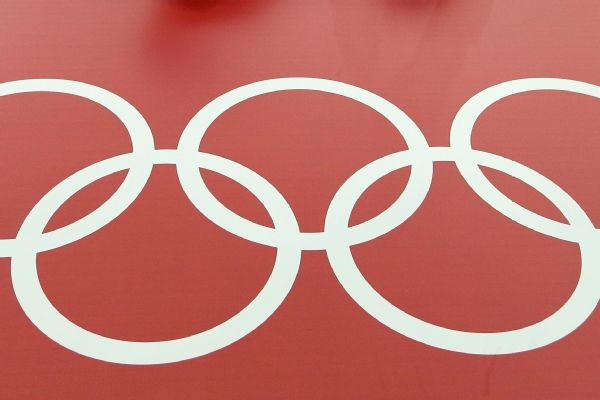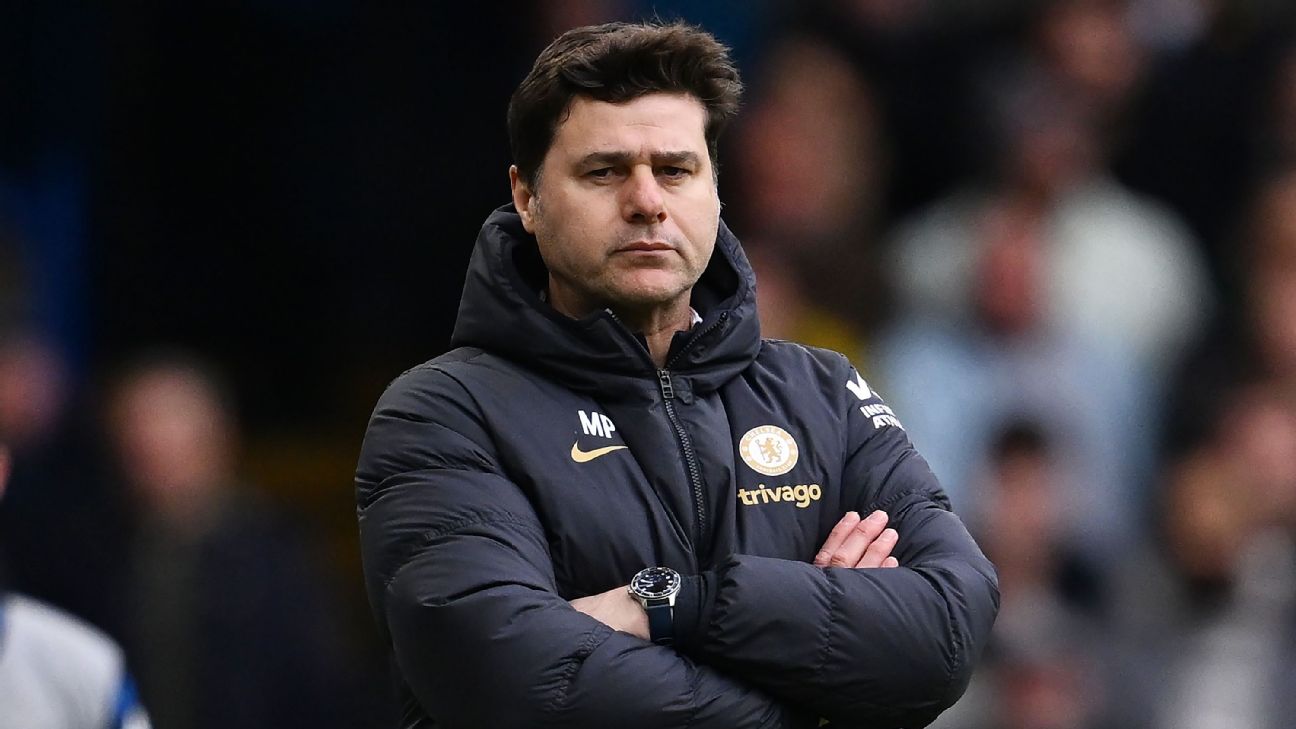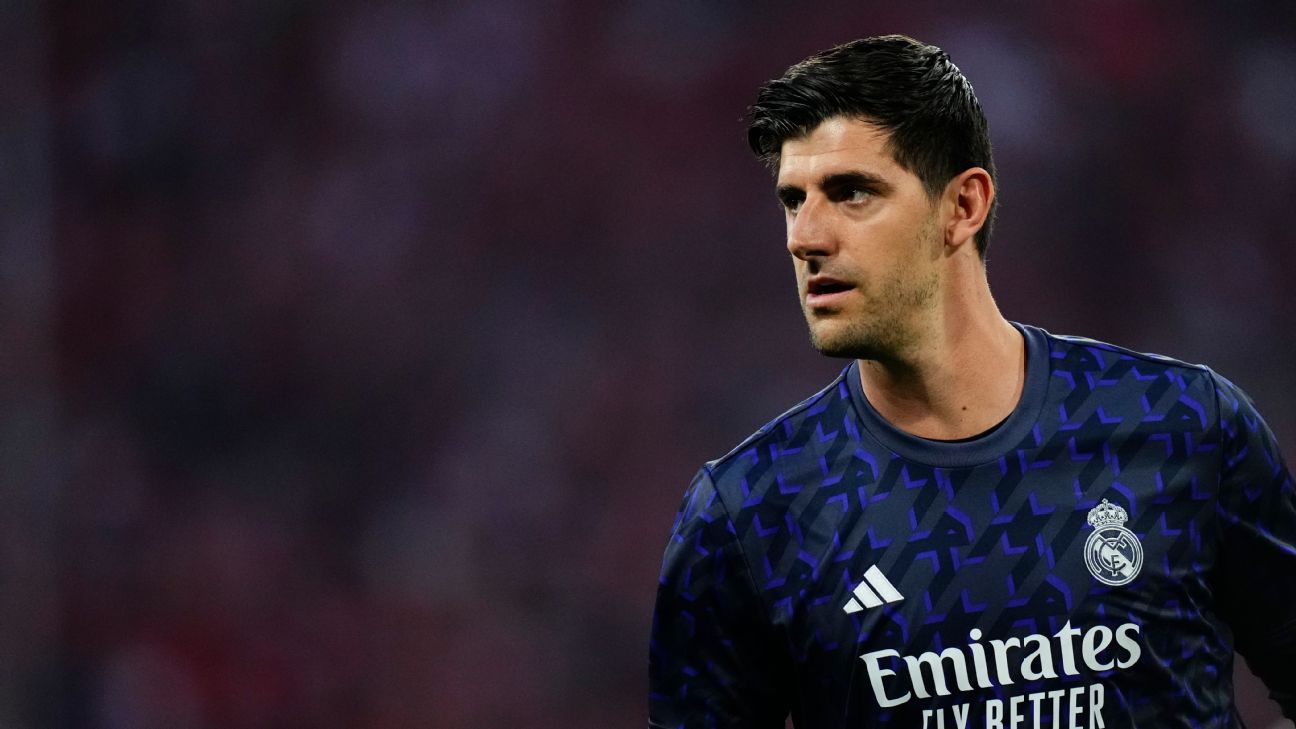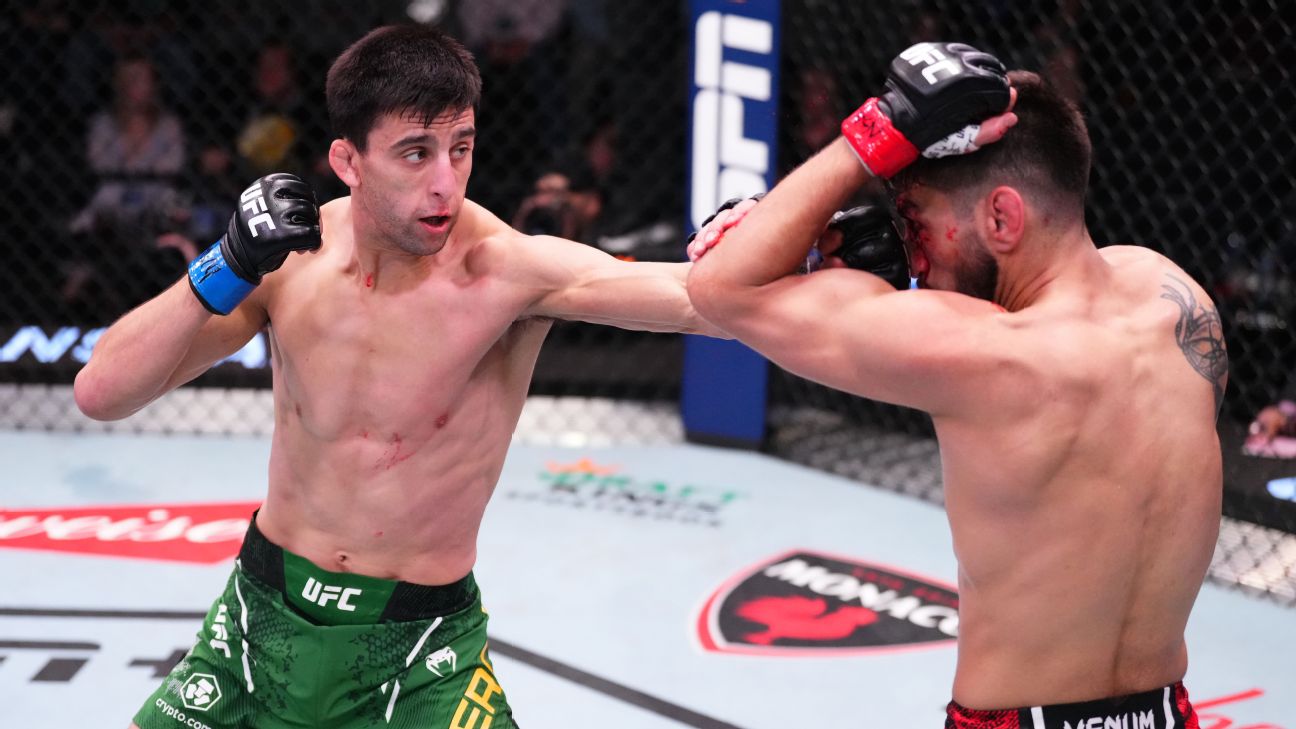![Mike Norvell [608x342]](https://a.espncdn.com/photo/2024/0422/r1322764_608x342_16-9.jpg)
Japan prove that class is permanent against in-form Uzbekistan to win U-23 Asian Cup
Spring practices turned into spring scrambles around much of college football in recent weeks.
After a delayed and frenzied end to the college coaching cycle, the spring workouts arrived with a distinct degree of suddenness. Coaches hired in January and February, such as Alabama's Kalen DeBoer, barely had a chance to pause before they were on the practice field with their teams.
"You can have a 30-, 60-, 90-day plan, but that plan starts at the beginning of December," DeBoer told me. "If you get hired in the middle of January, you're already 45 days into it, technically. Man, it gets crunched in a big way. The amount of time before spring practices is on you real fast, and all of a sudden, here we are."
DeBoer and the Crimson Tide completed the spring session April 13, leaving with some answers but also questions about what will be a highly scrutinized first season following Nick Saban's retirement. Other notable national teams also went through the spring with significant areas to address, whether it was an individual unit or position group, or the entire squad.
I explored six pressing questions around college football and reached out to some of the key figures as spring practice winds down.
Jump to a team: Texas | Florida State | USC | Alabama Kansas | K-State | Notre Dame | Nebraska | Washington
How ready is Texas for the SEC?When the SEC announced in August 2021 that it would add Texas and Oklahoma, the Longhorns faced a steep ascent to be ready for the nation's premier conference. They had posted their third 5-7 record in the previous seven seasons, and had only one 10-win season in the previous 12.
Nearly three years later, Texas is a different place in several areas. The Longhorns are coming off of their first College Football Playoff appearance and their first league title since 2009. They also return stars like quarterback Quinn Ewers, a Heisman Trophy candidate.
"We do believe we have a championship-caliber team," Texas coach Steve Sarkisian told me. "But we also know that championship caliber is predicated off of what we do and not necessarily what our opponents will do or won't do."
Sarkisian and his players understand the SEC is looming but aren't yet focused on their new league. Texas has made the upgrades along the line of scrimmage, especially the offensive front, a position that had underperformed for years before Sarkisian's arrival. Led by tackle Kelvin Banks Jr., center Jake Majors and others, Texas' offensive line displayed "quality depth" this spring, Sarkisian said.
The next step is improving a secondary that struggled at times last season, as Texas finished 113th nationally in pass yards allowed. Sarkisian noted the significance of nickel safety Jahdae Barron's return, and additions such as Clemson transfer Andrew Mukuba to complement a young core that includes Malik Muhammad and Derek Williams Jr.
"We had to build that secondary up to guard people because of the speed in that league," Sarkisian said of the SEC. "It's a deep position group, it's a highly competitive group, and we're going to need them all as the season goes on."
What must Florida State do to maintain its momentum after the CFP snub?Arguably no national contender needed spring practice to arrive faster than Florida State, which was left out of the final four-team CFP despite a 13-0 record and an ACC title in 2023. The Seminoles lose defensive linemen Braden Fiske and Jared Verse, and other NFL draft hopefuls, but also return notable players on both sides of the ball, including cornerback Fentrell Cypress II and running back Lawrance Toafili.
FSU continued to mine the portal for key additions, including quarterback DJ Uiagalelei, edge Marvin Jones Jr. and cornerback Earl Little Jr. The team has clear strengths, such as the secondary, led by Cypress, Shyheim Brown and others. Emerging strengths include the offensive line, which returns All-ACC performer Darius Washington, veterans Robert Scott Jr. and Maurice Smith, and others.
"It has a chance to be the best it's been since we've been here, with the experience we have coming back, the depth that's been developed, the competition across the board," FSU coach Mike Norvell told me.
For the second straight spring, Uiagalelei found himself in the spotlight with a new team, albeit in a familiar league (ACC) where he started his career at Clemson. He picked Oregon State to learn a more sophisticated scheme and had a career high for passing yards (2,638) but only completed 57.1% of his attempts. The key now is whether he will put everything together under a coach in Norvell, who has developed quarterbacks like Jordan Travis and Riley Ferguson.
"The ability that he has is really special," Norvell said. "It's been a great experience for everyone here to be able to be around him, to see the work ethic, to see the talent that he has. He wants to go be the best of himself."
What will USC's new-look defense look like in the Big Ten?Defense has been the missing piece for Lincoln Riley's mostly masterful coaching career. He reset USC's defensive staff in the winter, making impressive hires such as lead coordinator D'Anton Lynn, co-coordinator Eric Henderson and linebackers coach Matt Entz, previously head coach at FCS power North Dakota State.
Lynn dramatically upgraded UCLA's defense in 2023, as the Bruins finished second nationally against the run, 10th in yards allowed and 14th in points allowed. He inherited a USC defense that made its share of splashy plays -- 29 takeaways in 2022, 85 tackles for loss in 2023 -- but too often busted at critical moments.
"These guys, they make plays," Lynn told me. "It's about limiting the big plays. Why are we having some of those big plays? It doesn't matter what level you play, the No. 1 culprit a lot of times comes with communication and guys not being on the same page. We just make the guys talk all the time. We want them to talk about offensive information -- what you're seeing from the tight end, the backfield splits. We want to overcommunicate our calls."
Lynn and Riley have emphasized a more physical approach to the defensive front, in an effort to better control the line of scrimmage. Hired Dec. 1, Lynn has seen several USC defensive linemen add up to 30 pounds during his time with the program.
"All of our interior guys and all of our ends, they've all met the weight requirements that we had for them, and they're all moving just as good, if not better," Lynn said.
How has Alabama adjusted to life after Nick Saban?DeBoer noted that in addition to the timing of his hire, what makes Alabama different from his previous two head-coaching stops is the program's reputation. He stepped into the bluest of blue-blood programs, coming off of a CFP semifinal appearance, and carrying the expectation to contend nationally right away.
There have been some obstacles. DeBoer's initial plan was to have Ryan Grubb, DeBoer's offensive coordinator at both Washington and Fresno State, oversee quarterback Jalen Milroe and the Tide offense. But Grubb stayed in Seattle to work for the Seahawks, alongside talented offensive line coach Scott Huff. DeBoer went with familiarity in promoting Nick Sheridan and JaMarcus Shephard -- Sheridan as the playcaller -- and hired veteran line coach Chris Kapilovic to fill Huff's role.
Despite the moving parts on the staff and a new scheme for players, Alabama didn't let up during spring ball.
"We pushed hard, even the installs and all that," DeBoer said. "We've really kept the pedal down on trying to get things to our guys. A credit to them, too, because they've embraced it all. They want to be great. That's why they're here. The players have dived into it and put in the extra time on their own to make every practice real efficient."
Who has emerged in the wide-open Big 12 race?The Big 12 might not be the strongest league in 2024, but the scope of teams that can win a championship -- and earn a guaranteed spot in the expanded CFP -- is quite possibly unmatched. I visited two of them this month in Kansas State, the 2022 champion, and Kansas, which recorded its best season (9-4) since 2007, when it went 12-1 with an Orange Bowl title.
Kansas State's case is rooted in a defense that returns mostly intact and features standouts like linebacker Austin Moore and cornerback Jacob Parrish. The buzz is also building for sophomore quarterback Avery Johnson, who averaged 5.7 yards per carry with seven touchdowns in 2023 and has grown as a passer with starter's reps this spring.
"He's probably the best athlete in the country, I would guess, at quarterback," defensive coordinator Joe Klanderman told me. "He's darn near 23 miles an hour [running], he's got a cannon for an arm, it's not like he can't throw it. He's going to be a problem for people."
Kansas will play all of its games off campus as renovations continue at David Booth Memorial Stadium, but coach Lance Leipold returns a team filled with veterans who have engineered the program's rise. The offense could be Leipold's best as KU, as running backs Devin Neal and Daniel Hishaw Jr. both return, alongside a dynamic receiver group featuring seniors Lawrence Arnold, Luke Grimm and Quentin Skinner. The big unknown is the long-term health of quarterback Jalon Daniels, who missed most of last season with a back injury but has stood out this spring.
"Because of his ability to run and being able to do a lot of the things that he's done with his feet, a lot of people probably underestimate his arm talent," new offensive coordinator Jeff Grimes told me. "He can make all the throws and he's inherently accurate."
How is Notre Dame positioned for the expanded CFP?Notre Dame coach Marcus Freeman is no longer new to the job or the school, and ultimately will be judged by whether he can make the Irish a consistent CFP contender in the expanded field. Freeman should have one of the nation's best defenses in 2023, led by a secondary featuring Thorpe Award winner Xavier Watts, cornerback Benjamin Morrison and others. The team once again went to the ACC for a coveted portal quarterback in Riley Leonard, although the Duke transfer missed most of the spring while recovering from ankle surgery.
Although Leonard was sidelined this spring, new offensive coordinator Mike Denbrock had a chance to work with a unit seeking more production against quality opponents. Notre Dame finished seventh nationally in scoring (39.2 PPG) last fall, but averaged just 19 points in losses to Ohio State, Louisville and Clemson.
"It's the confidence and willingness to throw the ball downfield," Freeman told me. "Sometimes you've got to throw it up and have faith that your quarterback's going to put the ball where it needs to be, and your wideout's going to make a play, and you're going to have the protection that you need."
Even if Leonard performs to expectations -- backup Steve Angeli also drew good reviews this spring, and freshman C.J. Carr, an ESPN 300 prospect, impressed in the spring game -- Notre Dame will need more from its receivers, who haven't produced at a high rate lately. No Notre Dame player recorded 500 receiving yards or 30 receptions in 2023. Kris Mitchell, a transfer from Florida International, had a 62-yard touchdown in the spring game and adds to a group that features Jaden Greathouse, Jayden Thomas, Jordan Faison, Deion Colzie and others.
"We've got a lot of guys coming back, but then you've got some new guys," Freeman said. "I don't think there's going to be one individual, but a collective group of guys that really create explosive plays for this offense."
What must Nebraska do to finally turn the corner in an expanded Big Ten?The excitement around coach Matt Rhule in Lincoln is justifiably growing, but Rhule has to deliver a product, especially late in games, that looks and performs differently than those of his predecessors. Rhule and the Huskers must limit "the lowlights," he noted this month, that have repeatedly cost the team winnable games and kept them out of the postseason since 2016.
How does Rhule change Nebraska's late-game DNA?
"It's us as a staff, setting a standard of, 'The behaviors that cause these results, we're not allowing,'" he told me. "Or we're celebrating the people who do it this way. I don't know if it's DNA, but it can become a habit. You can talk about it so much, 'Hey, don't do this,' that they end up doing it. So to me, it's focusing on, 'Here are the things we want to do. Here are the standards we have.' And making sure we uphold them."
After finishing 129th nationally in turnover margin (minus-17), Nebraska is attacking the problem from both sides. Quarterbacks Heinrich Haarberg, Dylan Raiola and Daniel Kaelin receive immediate corrections in practice or during film study when they risk turnovers. A defense that shined in almost every other category and returns almost fully intact is now pushing for takeaways.
Phil Snow, Rhule's longtime defensive coordinator at both college and the NFL and now an analyst with the Chicago Bears, visited the team and spoke about how sacks on their own can be selfish plays.
"He's like, 'Guys who have been there before, guys who understand the expectation, know that when they get a chance to hit or be around the quarterback, the ball is the most important thing, so those guys are attacking the ball,'" Huskers defensive coordinator Tony White said of Snow. "Not just happy to wrap somebody up and get the sack, right? I'd rather have the forced fumble and get the ball, versus a sack. That kind of evolution."
How will a new-look Washington team navigate all the changes?Washington coach Jedd Fisch has walked into plenty of Year 1 situations -- as a college and NFL assistant, and in his first head-coaching opportunity at Arizona, which went winless in the shortened season before he arrived. But Fisch could never envision a scene like the one he entered at Washington, which might be unprecedented in college football history.
"It's got to be the most wild scenario," he told me. "You go 14-1 and 21 of the 22 guys who started the game aren't on the team. I don't know how that happens, let alone the idea that is actually the job we took over."
Fisch admits Washington is in the feeling-out stage and forming a team personality that he doesn't expect to crystallize until mid- to late August. He has delivered a message to Washington's holdovers: It's my job to replace you; it's your job to become irreplaceable.
Several have stepped up, including linebackers Carson Bruener and Drew Fowler, and safety Kamren Fabiculanan. Transfers also will play big roles on Fisch's first team, including quarterbacks Will Rogers and Demond Williams Jr., a freshman who originally signed with the staff at Arizona.
"His work ethic is awesome," Fisch said of Rogers. "He's embraced every piece of coaching that we've given him. He's not pushed back at all on what we've asked him. He's been a superstar teammate and exactly what you want to have as your quarterback, as you're teaching a new system. Demond has had the best spring of any freshman I've ever been around. His freshman spring or whatever you want to call it, high school senior year spring, has been elite."


